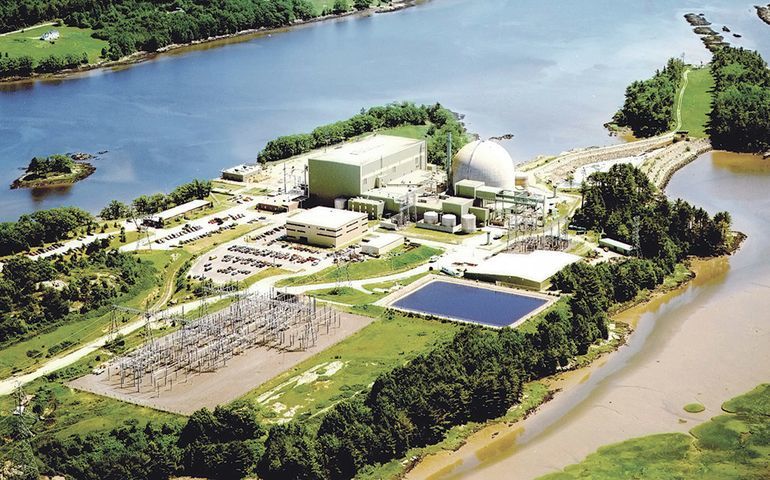Federal bill would help Wiscasset with stranded nuclear waste
 File Photo / Nuclear Regulatory Commission
An aerial view of Maine Yankee, the Wiscasset nuclear plant whose dismantling and decommissioning was completed in 2005.
File Photo / Nuclear Regulatory Commission
An aerial view of Maine Yankee, the Wiscasset nuclear plant whose dismantling and decommissioning was completed in 2005.
New legislation introduced to Congress would provide federal assistance that may help communities like Wiscasset address the impacts of stranded nuclear waste.
Under the legislation, Wiscasset would receive grant funding to offset economic burden of storing spent nuclear fuel, according to a news release.
U.S. Sens. Susan Collins, R-Maine, and Tammy Duckworth, D-Ill., introduced the Sensible, Timely Relief for America’s Nuclear Districts’ Economic Development (STRANDED) Act. Sens. Angus King, I-Maine, Ed Markey, D-Mass., and Bernie Sanders, I-Vt., are original cosponsors of the bill.
The STRANDED Act has received support from the town of Wiscasset, where the board of selectmen passed a resolution last year calling for passage of the bill.
“Communities across the nation that continue to store spent nuclear fuel are unfairly burdened with the direct and indirect costs of storage,” Collins said in the release.
Wiscasset is home to the decommissioned Maine Yankee nuclear power plant.
The legislation would award grants to local government entities to offset the economic impacts of stranded nuclear waste, establish a task force to identify existing funding that could benefit these communities, and create an innovative solutions prize competition to help communities find alternatives to nuclear facilities, generating sites and waste sites.
Under the legislation, affected communities would be eligible for $15 per kilogram of spent nuclear fuel stored, which is consistent with the rate for impact assistance established under the Nuclear Waste Policy Act of 1982.
Maine Yankee permanently shut down in 1997. Under the Nuclear Waste Policy Act and a contract with the Department of Energy, the plant's waste was required to be removed by January 1998. However, more than 60 canisters of nuclear waste are still located at the Maine Yankee site.
In 1994, 33% of the state’s net electricity generation came from the Maine Yankee nuclear power station in Wiscasset and another 20% from petroleum-fueled generation. The energy mix of Maine’s power supply has undergone a substantial shift since then.
Maine Yankee’s prominence began to change as the aging plant, in service since 1972, became increasingly more difficult and expensive to run. In response to allegations of safety problems at the plant, the Nuclear Regulatory Commission started a lengthy investigation in 1995.
NRC identified many problems, and Maine Yankee’s owners determined it would be too costly to fix them and decided to permanently shut the plant down in August 1997. The eight-year $500 million decommissioning process was completed in 2005.










0 Comments